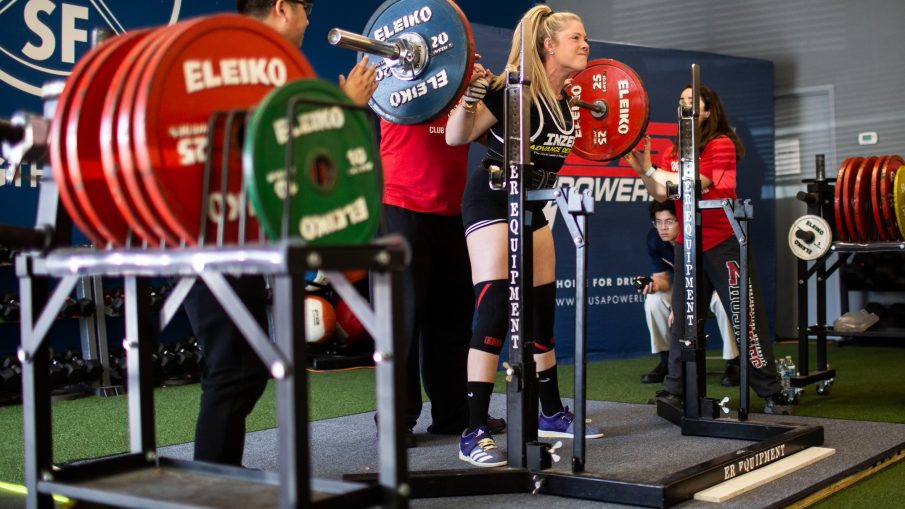Written by: Kevin Cann
We did our second skills class last night. Skills class is a class that I run where we cover aspects of skill acquisition. I think when most people hear the term skill they think of some specific sports aspect. In powerlifting they may think about technique and/or the actual strength that the lifter displays.
Skills go much deeper than that. We need to train our psychological skills as well. Many of which tend to be weaknesses of each individual due to the world in which we live. You are only as strong as your weakest link.
It seems to be very popular these days for coaches to say that lifters need to be focused to get the most out of their training program. This is for good reason as focus and attention are very important to developing high levels of performance. However, I do not see anyone explaining how to develop that skill of focus and attention.
A coach cannot just say to the lifter to be focused and pay attention. It does not work that way. Attention is made up of a few other underlying pieces. The underlying pieces of attention are awareness, intention, and effort.
Awareness is what we refer to as mindfulness in our pyramid. This is being present in the current moment free of judgment. This part of attention needs to be trained daily. The next part of attention is our intention.
I did a YouTube video on this topic on Monday. Intent is on our pyramid, but it isn’t just moving weights at max efforts. Intent goes much deeper than that. Intent is our personal philosophy. This needs to have deep personal meaning to us.
Whether you are aware of your intent or not, it is there. We need to structure our intention in a way that allows us to face each setback with courage. This is on the second level of the pyramid because it takes time to discover or deep reasons that drive our decisions. This is often referred to as our “why” we train. It requires lifters spending time getting deep into their souls.
Effort is also important for our attention. We only pay attention to things that are important to us or challenge us. Training needs to have consequences because consequences will grab our brain’s attention. This is for our survival.
When we ace novelty, complexity, or unpredictability our upper-level motor neurons will turn on. This is the brain paying attention. Over time of repetition under these conditions the brain will pass this skill onto the lower level motor neurons and it will require less energy and thought to execute, but will struggle to make improvements towards higher levels of performance.
So to develop attention we need to first develop awareness or mindfulness. Then we need to dig deep and discover our intentions. We also need the task to be challenging and/or have consequences.
Our program is set up to build attention over time. Week 1 we get a max effort variation. This brings novelty, complexity, and unpredictability into the session and it comes with consequences. The following week the lifter gets clear goals to focus on with immediate feedback. This continues to train attention. Week 3 they compete and beat week 1.
Confidence and trust in yourself arise from increasing your attention in training. It comes from continuously doing these repetitions over and over. This is another skill that needs to be developed. You can’t just be confident, but you need to earn the right to do difficult things.
That is a topic I will discuss later. If interested in skills class, where we cover these topics please reach out.

